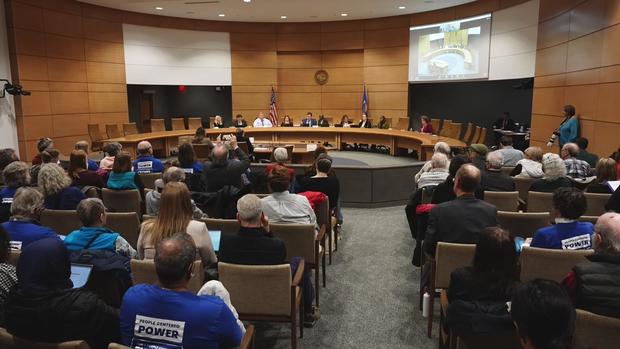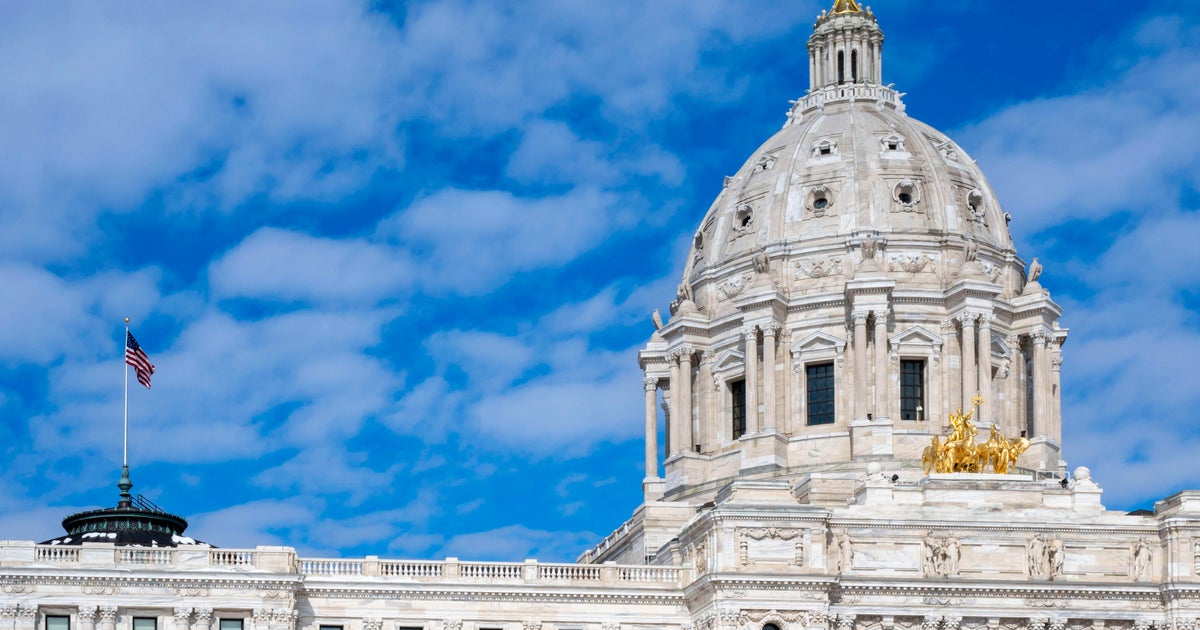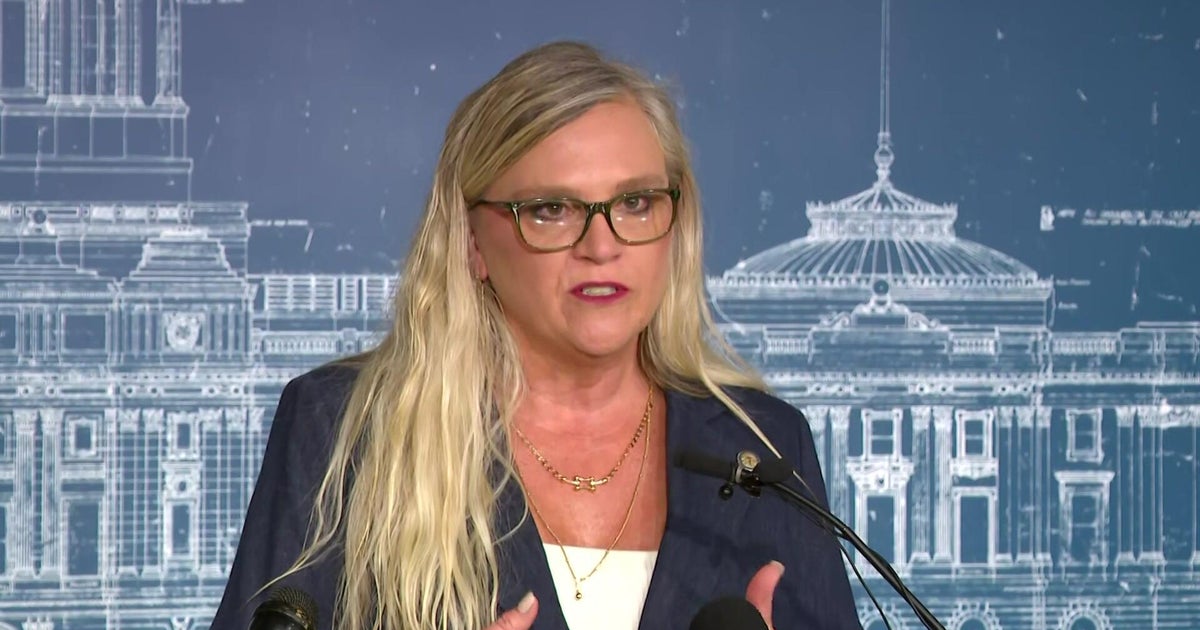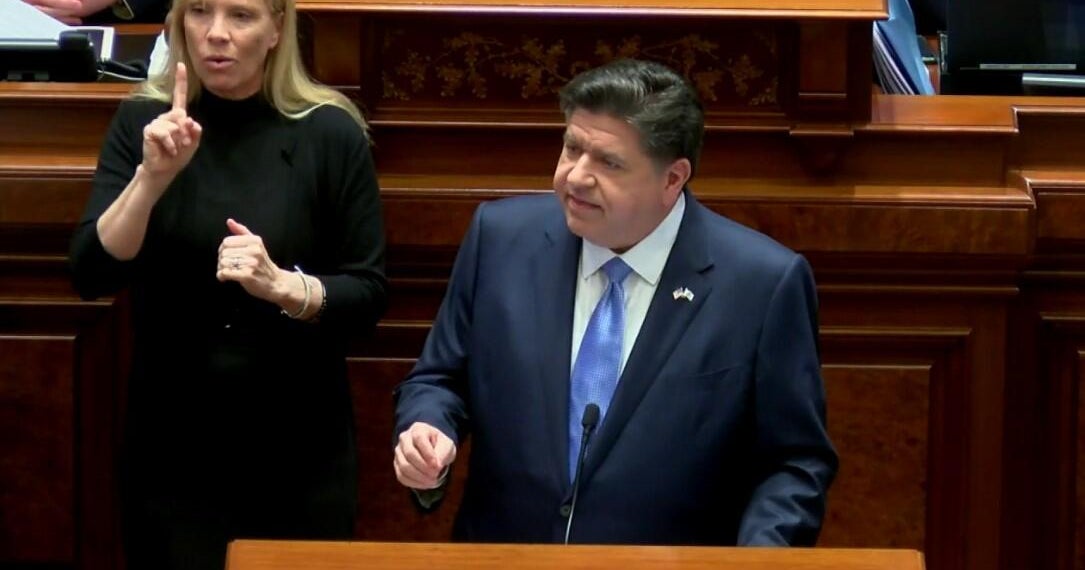Minnesota Democrats moving ahead with state paid leave program proposal, which they call a "top priority"
ST. PAUL, Minn. -- A Minnesota Senate committee on Wednesday advanced a bill that would create a new state family and medical leave program, which would guarantee paid time off for the three in four workers in the state who don't already have that benefit.
Under the plan, Minnesotans would be eligible for 12 weeks to care for a family member, including a newborn baby, and an additional 12 weeks for medical leave for a serious health condition that would keep the person out of work for more than seven days.
It would only be partial wage replacement determined on a pay scale, said Steve Grove, commissioner of the Department of Employment and Economic Development. His agency would oversee the program, modeled after how jobless claims are paid out, and it would be funded by a payroll tax increase of 0.7%, shared between the employee and employer.
"We have the tightest labor market in the entire country," Grove told lawmakers Wednesday. "There are four open jobs for every one person looking for one. We have to find a way to get people who aren't able to get back into the workforce, to get back into the workforce."
The United States is an outlier with no national paid leave policy, so state Democrats with their new majorities in the legislature are eager to move ahead with their own proposal -- a top priority that no longer faces a roadblock in a Republican-controlled Senate.
Dozens of supporters of the policy packed every corner of the Capitol press conference room ahead of the public hearing on the bill. They say having a program in Minnesota is long overdue.
Toni Mangskau, who is a volunteer for the AARP in Rochester, recalled the challenges of caring for her parents and her brother without paid leave.
"My role as a family caregiver has been a financial strain," Mangskau said. "During a nine-month period in 2017, I went without one third of my yearly income due to unpaid time off. And in the past, I have had to file for bankruptcy."
The payroll tax hike is a sticking point for some businesses and groups working on their behalf, who testified on Wednesday that the proposal creates a burdensome bureaucracy that leaves no room for flexibility.
"Just like it's not the fault of a worker who gets sick, or has a family member who gets sick, and needs to care for themselves or a family member, it's not the fault of the employer that this bill is going to pose significant obstacles and add significant costs and challenges for them," said John Reynolds, the state director for National Federation of Independent Business, which represents 10,000 businesses in the state.
The Minnesota Chamber of Commerce in statement said 80% of its members already offer paid leave in order to attract workers in a tight labor market, but rebuffed the DFL bill requiring businesses buy-in to state-run program.
"Policymakers should encourage or even incentivize this trend and not impose expansive and expensive one-size-fits-all mandates," said Lauryn Schothorst, director of workplace management and workforce development policy.
There is an opt-out for businesses who already offer paid leave in their benefits package, but they would have to pay a free and their plan would have to be "as good if not better than" the provisions detailed in this bill, Grove told reporters last week.
Eleven states have programs in place that would mirror this legislation in Minnesota, according to the National Conference of State Legislatures. Three in four Minnesota workers -- nearly 75% -- don't have access to paid leave, according to DEED.
Other small business owners testified before the committee that they support the plan because they want to provide the benefit but can't. They said this would be more affordable and reliable than scrambling to come up with room in their budget if an employee needs extended time off for their health or caring for a loved one.
"The private market provides unaffordable, substandard options," said Sarah Piepenburg, owner of Vinaigrette in Minneapolis. "This shouldn't be such a struggle for any of us. The universal paid family and medical leave program creates a system where everyone pays in a little and everyone benefits."
Republicans also voiced concern with the legislation and tried to amend the bill to instead look like GOP-backed plan that wouldn't mandate paid leave, but incentivize employers to offer it with tax credits.









